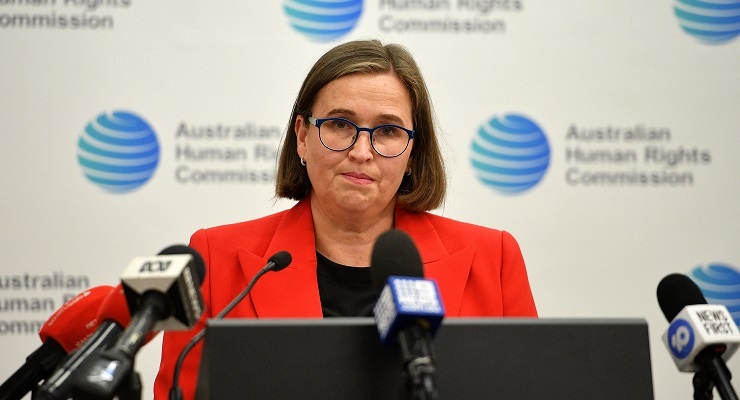
Sex discrimination commissioner Kate Jenkins has handed down her review of parliamentary culture, finding one in three staffers have experienced sexual harassment while at work.
Prime Minister Scott Morrison responded to the report in a press conference which started just 15 minutes after the 456-page document, titled Set the Standard, was released, and an hour before Jenkins spoke publicly about the report.
It was a faster turnaround than expected for the Morrison government, which waited more than a year before responding to Jenkins’ Respect@Work report into workplace sexual harassment.
What does the report say?
The report was based off responses from 1723 people and 11 organisations working within Parliament. Over 500 interviews were conducted. The review found 37% of people had experienced some form of bullying, one in three some form of sexual harassment, and 1% actual or attempted sexual assault.
One participant said in the report: “It is a man’s world and you are reminded of it every day thanks to the looks up and down you get, to the representation in the parliamentary chambers, to the preferential treatment politicians give senior male journalists.”
Set the Standard made 28 recommendations, including:
- Targets to achieve gender balance among parliamentarians;
- Establishing a joint statement of acknowledgement on the harm caused by bullying and sexual violence;
- Mandatory annual best practice training for parliamentarians and staffers; and
- an independent parliamentary standards commission with clear and consistent responses to reports and complaints of bullying, sexual harassment and sexual assault to improve accountability and visible consequences for misconduct.
These recommendations, Jenkins said, should be rolled out in stages to ensure the more important recommendations were implemented quickly.
She added that power was a huge driver in abuse. “Parliament is inherently about power, and that power rallies in multiple directions,” she said.
“We heard that power imbalances and the misuse of power is one of the primary drivers of bullying, sexual harassment and sexual assault. Gender inequality and a wider lack of diversity, particularly evident in a low representation of women in leadership roles, means women are more likely to experience misconduct.”
She said parliamentarians and their staff don’t have the leadership skills required to effectively lead teams.
“[An] organisation’s leadership sets expectations through what is incentivised, rewarded, punished and reported,” she said, adding that even those who have had positive experiences in Parliament found their work did not always meet the standards expected of other modern workplaces.
How did Morrison respond?
Morrison thanked former Liberal staffer Brittany Higgins for coming forward with her allegation of parliamentary rape. He said he was “appalled” by the results, but wished he found them more surprising.
While his initial statement focused on the seriousness of the report, he later went on the back foot, noting the existence of harassment in other workplaces. He also focused on the “multi-party process and approach” to address the serious culture of misconduct.
Morrison said he had participated in the one-to-two-hour, non-mandatory training offered to address parliamentary sexual violence. When asked by Crikey in light of the report whether this one hour was enough, and whether training would be expanded, Morrison said he was open to feedback by those who had received the training.
Minister for Women Marise Payne was also in attendance, but made just one statement on the government’s response to the report.
What does this say about Australia?
CEO of feminist leadership organisation YWCA Canberra Frances Crimmins told Crikey there needed to be not just a shift in parliamentary culture, but a complete stop of the abuse and harassment.
“If this happens in Parliament, what does it say about Australia’s social norms?” she said, adding recent cases of sexism, harassment and abuse in high schools was evident of the standards parliamentarians were setting.
“Young people don’t have role models in Parliament,” she said.
“These are entrenched values … There has to be consequences, and people need to be held accountable. The code of conduct in Parliament seems lower than in the Australian cricket team and we need a complete overhaul.”








Not sure whether the PM’s response counts as an announcement? I’ll wait for a plan, and then perhaps a pamphlet.
The linked article has a poignant point.
Jenkins wrote in her report that the lack of positive duty in the Sex Discrimination Act meant employers prioritised employment, work health and safety laws, placing a “heavy onus on individuals to complain”.
Management by complaint is a sign of a toxic workplace culture.
Perhaps some discreet body cams so we can all see this harassment. What’s better for achieving change: expensive court proceedings or public humiliation and vilification of offenders?
The question that must be put to the PM :’If the culture of Parliament House remains unchanged, would you be happy to see either or both of YOUR daughters working in Parliament House when they reach working age?’